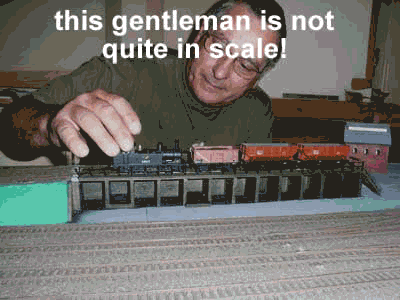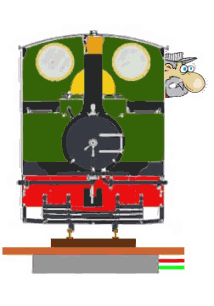|
how to get a stalled loco going again
It is hard for men to discuss certain things
without falling about laughing. I'm afraid this is one of them!
How many of you have had to lean over your
layout and give a loco a shove? How embarrassing is it at an exhibition?
How often have you damaged a delicate bit of scenery doing it?
If the answer is YES to any of the above,
read on. If it is a NO, either you have never run a model railway or you
are completely delusional!

It all started while chatting with the redoubtable Roy Link. The conversation got on to layouts and sound and Roy
mentioned that one of his friends has a large bass speaker under his
layout and never gets stalled trains. This got me thinking. County Gate is
actually what is disparagingly called a 'rabbit warren' layout. We cannot
afford to get trains stuck behind the scenes when we are going for
automation. The layout scenery gets damaged with large hands when trains
get stuck 'on scene' too.

this is a 3 Volt 12mm Shaftless Vibration
Motor available from
Precision Microdrives
After a few trials, I glued a vibrator from
and old mobile phone under a section of track and it worked a treat! I made
sure that the wobble motion is from side to side, (90 degrees to the
rails).

Of course, you have to be sure that
everything on the layout is well glued down, and if you have laid on foam,
you are probably buggered. I am ordering some more of these things and
will experiment to find out how many we need and at what spacing. Now if
we can give a little shake every time we start a loco.....................
Four wobblers were installed under the fiddle
yard. Resisters were added to allow them to be run on 12 V DC.


|